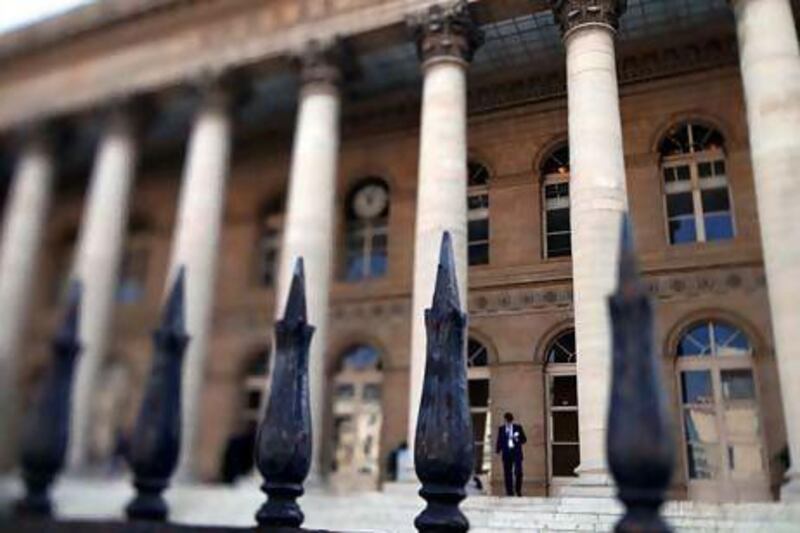MARSEILLE // The tax and spend ambitions and fiscal credibility of François Hollande's new socialist government face a symbolic test from today when France becomes the first European country to impose a financial transaction tax.
With much of the country embedded in the traditionally untouchable summer holidays, the tax takes effect amid widespread confusion as to how it will work - and how easy it will be for prudent investors to avoid.
At first glance, the tax has three obvious objectives:
To generate some of the revenue Mr Hollande needs to fund his spending plans and tackle public debt;
To deter damaging short-term speculation in the markets; and
To show voters who swept the left into power in the presidential and parliamentary elections that their choice really will lead to the change they were repeatedly promised.
And there is no guarantee the levy will achieve any of this.
Mr Hollande's campaign declaration, music to socialists' ears, is already showing signs of being tempered in practice by the realities of tough times. And the Elysée Palace is aware the president's opponents are looking for loopholes that could dampen government hopes of raising €1.6 billion (Dh7.2bn) in a full year.
But, if the potential revenue gain is already modest, it would be a mistake to see the financial transaction tax as a wicked socialist plot.
Wicked or otherwise, it was dreamed up by Mr Hollande's centre-right predecessor, Nicolas Sarkozy, as he looked in vain for ways of pleasing an electorate weary of economic crisis and, perhaps more importantly, weary of him.
Mr Sarkozy's intention was more modest. Mr Hollande has chosen to double his proposed rate to 0.2 per cent on financial asset acquisition, the levy affecting purchases of French equity securities of more than 100 companies with market valuations exceeding €1bn, high-frequency trading and sovereign credit default swaps.
But financial analysts say institutional investors will try to avoid the duty using "contracts for difference" (CFDs), under which they speculate on stock values without actually acquiring the shares.
This device, used by investors on the United Kingdom's stock market to sidestep stamp duty, has a tried-and-tested look.
"We've never purchased UK stocks without using a CFD," Fabrice Seiman, the joint chief executive of the Lutetia Capital fund based in Paris, told Bloomberg News. "Now we'll do the same for French stocks. It is individual investors who are going to pay."
As The Wall Street Journal put it, the most obvious way of avoiding the tax would be to stop investing in France. It described the less dramatic alternative of CFDs as a type of futures contract settled in cash "over the counter" outside the scope of a transaction tax. Some observers believe the tax could prove impossible to police. Neighbouring countries, notably Germany, Italy and Spain, will be watching with interest, not least to learn how not to go about imposing their own planned versions.
The Financial News, based in London, reports deep uncertainty in France in the run-up to the implementation of the tax, quoting two unnamed brokers as describing the confusion as "mayhem".
"It's widely understood that this tax was rapidly introduced as an election gambit by Mr Sarkozy," Simon Andrews, a director of the Futures and Options Association, which represents 160 investment firms and institutions, told the paper. There has not been enough thought on how the tax will be collected, he added.
Some brokers are even hoping for a U-turn. Will Mr Hollande's bark turn out to be worse than his bite?
In the row over big redundancy plans in industry, he appeared last week to counter the business-bashing instincts of ministers during a visit to a research centre near Paris. "We must show our confidence in, and support for, companies and salute all those who contribute to employment in France," he said.
His budget minister, Jérôme Cahuzac, followed this by speculating on radio that the most headline-grabbing of Mr Hollande's tax plans - a 75 per cent levy on income over €1 million a year - may after all be subject to certain exemptions.
But if the financial sector is hoping for a swift easing or even clarification of the transaction tax, it may be disappointed.
As at least one banker has observed, the height of the French summer is not a good time to expect plain, dependable answers to complicated questions.






